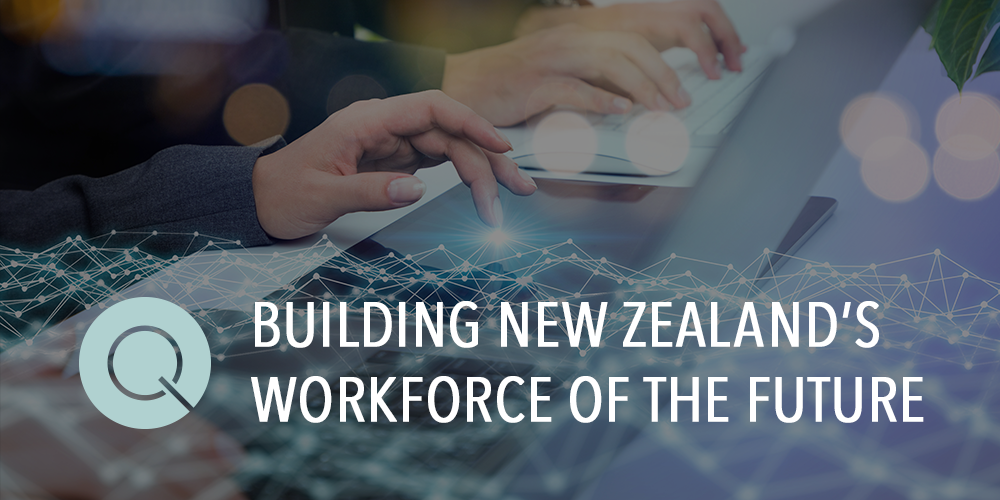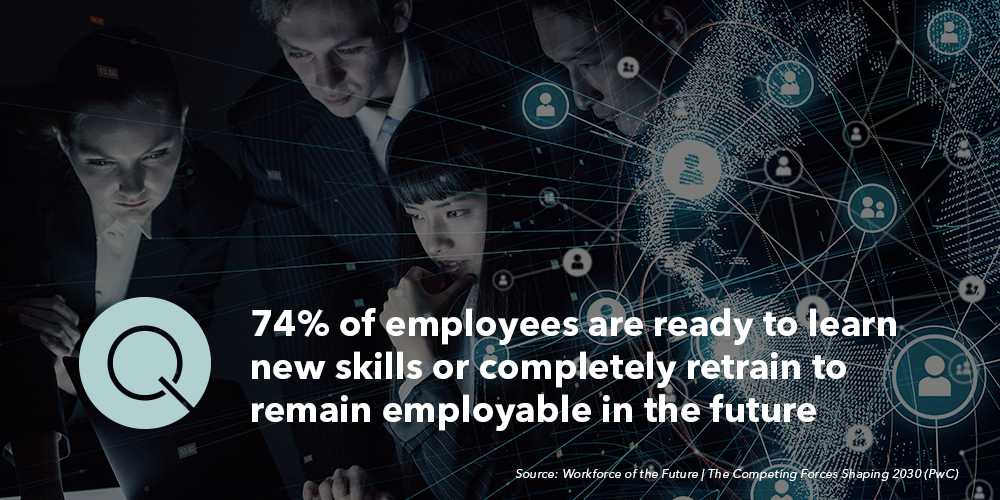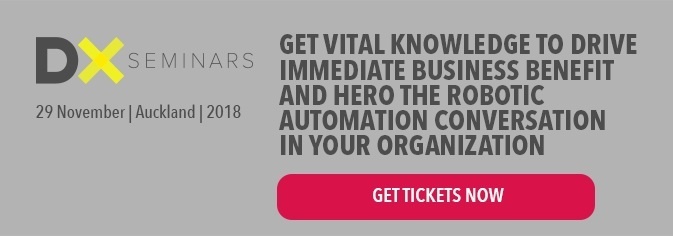
We’ve all seen the headlines: The robots are coming to steal our jobs! It’s a great story for the sake of headlines, but recently we’ve seen three major studies which show that, in fact, robotic automation will lead to job gains.
The robots are coming... and if we get it right, they will bring with them new and interesting jobs and the end of mundane, repetitive tasks.
But more than that, automation has the potential to help workers into more interesting and fulfilling jobs. Studies by Professor Leslie Willcocks and Mary Lacity from the London School of Economics and the University of Missouri-St Louis' College of Business, respectively, show that by pairing humans and robots, companies can deliver better services for less and jobs can become more interesting. Professor Willcocks will be presenting at Quanton’s exclusive DX Seminar for business leaders to understand the immediate potential for Robotic Process Automation and the forthcoming opportunities of cognitive and intelligent automation. Event and registration details for this exclusive event on November 29th are now online.
In the workforce of the future many of the mundane, tedious jobs businesses are tasked with will be handled by Robotic Process Automation (RPA) – a digital transformation technology which deploys software robots to perform repetitive tasks creating, in effect, a virtual workforce of software robots for mundane tasks.
Our workforce would value doing more interesting or creative work, having better client engagements or adding real benefit to businesses rather than tedious repetitive activity.
But let’s be clear: This isn’t about creating alternative work forces where RPA is used to replace humans with software bots.
This is about creating an augmented workforce where the use of robots frees up the human workforce to do more complex, value-adding jobs, while helping improve customer experience and creating organisational speed and agility. RPA, when carried out correctly, offers that potential.
There are some areas where software robots excel, and there are some where humans excel.
The application of RPA enables the human workforce to use its time and skills on tasks that need our ingenuity and creativity, our soft skills, human interaction and emotional intelligence, along with dealing with exceptions – while technology can be used to address the increasing volume and complexity of data and operational processing activities.
We tend to view technology from the perspective of what it will take away from the human workforce. The alternative perspective is to consider what we stand to gain by enabling the human workforce with advanced technology.
Kiwi businesses are struggling to attract and retain talent. We have a finite pool of skilled workers in New Zealand and it’s often not so much capital constraining businesses, as it is access to resources and talent. But what if we can remove mundane tasks from people’s jobs and liberate them into doing more interesting and rewarding work? It’s something we’re already seeing in our clients, some of whom are embracing RPA not as a means of headcount reduction, but instead to gain capacity so they can grow and deal with the increasing demands, freeing up their teams to work on high value, revenue-adding work.
Another aspect to consider is that business competition is now no longer constrained by geographical boundaries or traditional competitors within our respective sector. New Zealand businesses are now competing directly with global giants such as Facebook,Google, Apple, Netflix and Amazon. The challenge for New Zealand businesses is to drive commercial efficiencies, increase productivity, be more agile as well as have deeper relationship with their customers. Businesses have to operate smarter if they are to compete with these global giants who leverage economies of scale and disruptive business models.
The Augmentation of our workforces with RPA and other intelligent technologies creates an opportunity for New Zealand businesses to level the playing field and transform their operations, create new value propositions rapidly, as well as do things differently to remain competitive and relevant in the digital future.
But RPA also brings with it responsibility for companies, individuals and society as a whole.
We need to invest in the existing workforce to train them for their place in the workforce of the future because the skills they have now, aren’t the ones they will need in five or 10 years. Investing in your workforce so they have the skills and are adaptable and resilient enough to deal with the changes is critical, as is having a clear strategy around what workflows and tasks you’ll assign to which part of your human and digital virtual workforce.

There’s also an onus on all of us as individuals to understand the impact of what is coming – and to consider the opportunities it presents in terms of changing our skill sets and beginning new careers – while governments too need to be involved in smoothing the way and preparing for the changing skill sets required.
We don’t know today what jobs might exist in 10 years’ time, or even five. Think back 10 years ago; did we foresee a future where people would be building careers out of blogging or social media? RPA is already creating new jobs from Automation Analysts, Automation Process Developers to Robot Controllers and Managers. What we do know is that whenever something is made more affordable and more widely available, you get more people interacting with it and new ways of thinking and doing things evolve. The democratisation of RPA and automation will fuel even more innovation.

RPA isn’t about what we’re losing. It’s about what we stand to gain by applying these new technologies and developing new business models.
The future of work, alongside the opportunities of Robotic, Cognitive and Intelligent Automation are some of the key topics we're excited about hearing more about from renowned global expert Professor Leslie Willcocks in Auckland this month at our next exclusive event.





